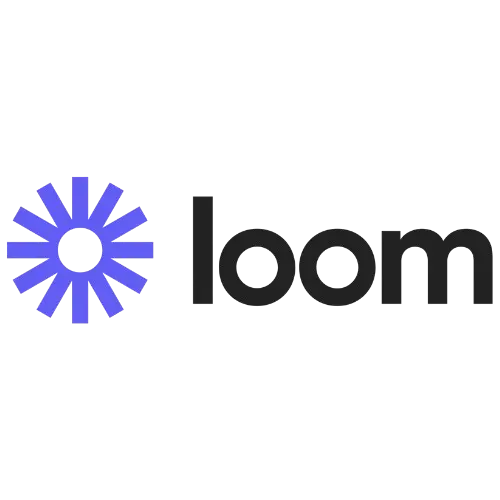Operator
Advanced Autonomous Agent for Web Automation.
Effortlessly Automate Browser Tasks with Cutting-Edge AI Technology
Ai Categories: Autonomous Agents | Productivity & Automation.
Pricing: Available via ChatGPT Pro at $200/month
What is Operator?
Operator by OpenAI is a research preview AI agent designed to autonomously perform a wide variety of tasks directly within a web browser. Unlike traditional AI models that mainly generate text or images, Operator can navigate websites, fill forms, click buttons, and execute multi-step processes on behalf of users. It is powered by OpenAI’s Computer-Using Agent (CUA) model, which leverages GPT-4o’s advanced vision capabilities combined with reinforcement learning, enabling intelligent and adaptive interaction with complex web environments. Operator aims to automate repetitive online tasks, significantly increasing user productivity.
Key Features
- Autonomous Web Interaction: Operates within a browser to navigate, click, type, scroll, and interact with websites without direct supervision.
- Task Automation: Excels at automating repetitive browser-based tasks such as form filling, online ordering, booking, data extraction, and content compilation.
- Computer-Using Agent (CUA) Core: Utilizes GPT-4o’s vision and reinforcement learning to interpret web page visuals and adapt to diverse web layouts.
- Seamless User Collaboration: Enables users to delegate tasks easily while monitoring progress, with the ability to intervene if needed.
- Web Interaction Without APIs: Operates directly on web interfaces without requiring service-specific APIs, allowing interaction with virtually any website.
- Multi-step Task Handling: Breaks complex goals into smaller actionable steps and executes them sequentially.
- Repetitive Task Efficiency: Highly effective at routine, time-consuming online activities.
Supported Platforms & Integrations
- Browser-Based: Runs as an agent within web browsers, accessible on any device with a compatible browser.
- No API Dependence: Interacts with website user interfaces directly, not reliant on APIs.
- OpenAI Ecosystem: Integrated with broader OpenAI tools including ChatGPT.
- Potential for Custom Workflows: Research preview hints at future workflow customizations and integrations via APIs or scripting.
Technical Details
- Computer-Using Agent (CUA) Model: Central model interprets screenshots, understands visual layouts, and performs browser interactions.
- GPT-4o Vision: Allows Operator to “see” webpage elements and engage with graphical interfaces like a human user.
- Reinforcement Learning: Trains via human feedback to improve task accuracy and adaptability.
- Action Space: Includes clicking, typing, scrolling, navigation—chosen autonomously based on task understanding.
- Autonomous Decision Making: Unlike scripted tools, Operator handles dynamic web pages and unexpected conditions.
- Research Preview: Continuously updated; capabilities and model evolving.
Security & Privacy
- Sandboxed Execution: Likely runs in a secure, isolated environment to protect user systems.
- Data Privacy: Adheres to OpenAI policies including encryption, access controls, and data anonymization.
- User Permissions: Requires explicit user control over task permissions and data access.
- Transparency & Auditing: Provides mechanisms for user monitoring of actions and audit logs.
- Ethical AI: Designed following OpenAI’s ethical AI principles with safety and misuse prevention.
- No Unpermitted Data Storage: Does not retain personal data without explicit consent.
Pricing
- Access via ChatGPT Pro Subscription: Currently available as part of ChatGPT Pro at $200 per month.
- Research Preview: Pricing may evolve with future tiers potentially spanning $2,000 to $20,000/month for enterprise or specialized use.
- Bundled Offering: Operator is not sold as a standalone product but integrated within OpenAI’s subscription models.
Customer Support & Resources
- Integrated support through OpenAI Help Center and ChatGPT Pro channels.
- Community forums and developer documentation available.
- Ongoing research publications and blog posts from OpenAI provide in-depth insights.
Community & Ecosystem
- Active engagement within the OpenAI developer and user community.
- Part of a growing field of autonomous AI agents fostering research and practical applications.
- Potential for third-party integrations and workflow expansions as the tool matures.
Recent Updates (As of August 2025)
- Fully integrated into ChatGPT as the ChatGPT Agent since July 17, 2025.
- Model upgraded from GPT-4o to “o3,” improving persistence, accuracy, and reasoning.
- Ongoing improvements in robustness and wider task handling.
- Access currently expanding beyond initial limited rollout.
Pros
🟢 Autonomous web interaction automating real browser tasks
🟢 Leverages advanced AI vision and reinforcement learning for adaptive behavior
🟢 No need for APIs; interacts directly with any web interface
🟢 Executes complex, multi-step processes with sequential task handling
🟢 Frees up significant user time for higher-value work
🟢 Actively improved with regular updates and model enhancements
Cons
🔴 High subscription cost ($200/month ChatGPT Pro) limits accessibility
🔴 Research preview status means occasional errors or limitations with tricky web pages
🔴 Requires user learning to fully utilize capabilities
🔴 Privacy and security require careful permission management
🔴 Not a standalone product; integrated only via ChatGPT subscription
🔴 Certain complex or sensitive tasks (e.g., financial transactions) are restricted for safety
Top Uses & Target Users
- Individuals automating personal online tasks (shopping, bookings, subscriptions)
- Small businesses streamlining administrative web tasks or customer service
- Marketers automating data scraping, competitor analysis, social media tasks
- Researchers collecting and compiling online data
- Data analysts automating extraction and preparation workflows
- Customer service professionals automating CRM and web-based interactions
- Developers and testers automating repetitive browser workflows
- Anyone with frequent, repetitive web activities seeking productivity gains
Comparison With Competitors
| Tool | Key Differences |
|---|---|
| Manus AI | Broader autonomous agent with multi-tool, multi-domain capabilities; Operator specializes in autonomous web automation. |
| Open-Source Alternatives | Free browser automation tools exist but lack deep vision and reasoning capabilities of Operator; often less polished. |
| Traditional RPA Tools | Follow scripted, rule-based processes; Operator adapts dynamically and interacts like a human in web environments. |
| Browser Automation Frameworks (Selenium, Puppeteer) | Require developer scripting; Operator is low-code/no-code and uses natural language instructions. |
| Google AI Studio | Provides AI model building tools; Operator is a ready-to-use autonomous web assistant without need for custom development. |
User Ratings & Reviews
- Early adopters praise Operator’s autonomous web navigation and task automation.
- Some users report occasional brittleness and challenges with complex sites due to research preview status.
- Subscription cost is frequently cited as a barrier, pushing some to explore alternatives.
- Overall sentiment highlights high potential and excitement about the future of autonomous AI agents.
Conclusion
Operator by OpenAI represents a major advancement in autonomous AI agents, moving beyond traditional chatbot interactions to direct, intelligent web automation. Leveraging sophisticated vision models and reinforcement learning, it automates complex, multi-step browser tasks with minimal supervision. While high subscription costs and research-stage limitations currently restrict broader use, Operator showcases the future of AI-powered web interaction. As it continues to evolve and integrate more deeply into OpenAI’s ecosystem, Operator is poised to become an indispensable tool for boosting productivity and streamlining online workflows in 2025 and beyond.








